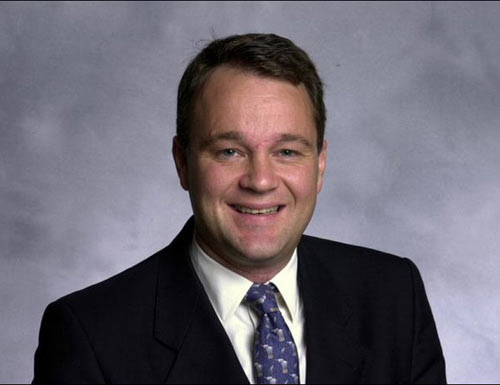|
查看原文
A Government minister has quit politics claiming he cannot live in London on his salary and expenses of nearly £120,000.
Mark Simmonds said he was quitting as a Foreign Office minister and was standing down as an MP because he was unwilling to carry on staying in hotels while his family were hundreds of miles away in Lincolnshire.
Mr Simmonds is the second minister to quit the department in less than a week, after Baroness Warsi quit over the Government’s policy towards Gaza.
Labour said the double resignation had left the Foreign Office rudderless just as humanitarian catastrophes were unfolding in Gaza and Iraq.
The former Africa minister said he was leaving the Foreign Office and standing down as an MP because the “intolerable” pressure on his family life. He is being replaced by James Duddridge, a former Government whip.
The unexpected resignation surprised many in Westminster coming months after Mr Simmonds had told his constituents in Boston and Skegness that he would stand for re-election. However, the minister insisted there was "nothing sinister" behind the announcement.
Mr Simmonds actually agreed to quit with David Cameron at last month’s Cabinet reshuffle. However it was delayed until Monday to allow him to chair a United Nations meeting on the Congo in New York last week.
There were claims that Mr Simmonds had resigned fearing a tough fight from the UK Independence Party at May's election, despite a 12,000 majority in 2010, although this was firmly denied by Mr Simmonds.
Mr Simmonds is paid £89,435 a year as a minister and MP and is entitled to £27,875 a year to rent and pay for a flat with him and his family.
However he said this did not “stretch” far enough and so he stayed in hotels during the week when he was in London. His wife is also paid up to £25,000 a year to act as his office manager.
In an interview with The Telegraph he said: “I have to stay in a different hotel room every week and any parent would hate that – and I do.
“The accommodation allowance needs to provide for families – and it doesn’t. When my children are on holiday they can’t come and stay with me in London - I can’t see them.”
“It has a really negative impact on the quality of life. I am not the only one who feels like this, but I am the only one at the moment who is doing anything about it.”
He said the new expenses system – which was reformed after the 2009 scandal which was exposed by the Telegraph - was putting people off from becoming MPs.
He said: “The pendulum has swung too far back the other way. It is almost impossible for an MP and a government minister with children to have a normal family life and that can only be a deterrent to people wanting to come into Parliament.”
Half as many people were applying to be MPs today compared in 2001, he said, adding that “the negative impact on family life is a significant part of that”.
He added: “If you want to attract normal people into Parliament to reflect the views of the population you have to got to put in place the support mechanisms to deliver that. I don’t believe those support mechanisms are in place and that is why I am going.”
Mr Simmonds later told the BBC he was standing down over the fear that he would not see his three children, who are aged 15, 13 and 12, grow up.
He said: “My children are growing up, my eldest daughter will be 21 by the time the 2020 election comes by and I don’t want her to turn around and say ‘I never saw my father, my daddy in that time’.”
He added that the thought of staying in a hotel every night, particularly when his children were on holidays, “just fills me with dread and horror”.
Mr Simmonds said he was not willing to live in the “outer reaches of London” where rents were more affordable.
Mr Simmonds’ claims that the allowances were not enough to support a family life were denied by the Parliamentary expenses watchdog, which last December recommended an 11 per cent pay rise for MPs after May's general election.
A spokesman for the Independent Parliamentary Standards Authority said: “Ipsa is awake to the impact on family life for MPs who have to live in two locations – in London and the constituency. That is why we provide more support to MPs with family or caring responsibilities.”
An MP with three children like Mr Simmonds would be able to claim £27,875 a year “allowing them to rent a flat big enough to accommodate their children”, he said.
|
查看譯文
據(jù)《每日電訊報(bào)》8月12日?qǐng)?bào)道,英國(guó)外交國(guó)務(wù)大臣馬克·西蒙茲已經(jīng)離開政壇,并稱近12萬英鎊的年薪(約123萬元)在倫敦根本不夠過活。
西蒙茲表示,自己辭去外交大臣及國(guó)會(huì)議員的職位,是因?yàn)椴辉敢饪偸谴粼谫e館里,而家人卻住在數(shù)百英里之外的林肯郡。
此前,外交部加沙事務(wù)負(fù)責(zé)人沃西女男爵因不支持英國(guó)政府在加沙的政策而辭職。
工黨說,兩人的辭職再加上加沙和伊拉克展開的人道主義危機(jī)使外交部陷入無人管理的狀態(tài)。該黨前黨鞭詹姆斯·杜德里奇將接替西蒙茲的職位成為下一任非洲大臣。
西蒙茲此舉讓威斯敏斯特宮中的議員們大吃一驚,但他堅(jiān)稱他的辭職并無隱情。
據(jù)悉,西蒙茲之所以辭職,是因?yàn)樗麚?dān)心在明年五月的選舉中與獨(dú)立黨會(huì)有一場(chǎng)“惡仗”要打。但他堅(jiān)決否認(rèn)這一說法。
西蒙茲作為外交部大臣和議員的年薪是8.94萬英鎊(約92.38萬元)。另外還享受2.78萬英鎊(約28.79萬元)租房補(bǔ)貼,用來繳納他和他家人所住公寓的租金。作為他的業(yè)務(wù)經(jīng)理,他的妻子也有2.5萬英鎊(約25.83萬元)的年收入。然而,由于租房補(bǔ)貼的范圍遠(yuǎn)“不夠?qū)挕保虼嗽诠ぷ魅账ǔ6即粼趥惗氐馁e館。
西蒙茲接受采訪時(shí)說:“我不得不每周都呆在一個(gè)不同的賓館里,家里有小孩的人都會(huì)討厭這一點(diǎn),我也不例外。”
他說:“住房補(bǔ)貼需要為整個(gè)家庭著想。但英國(guó)的住房補(bǔ)貼制度沒有做到這一點(diǎn)。我的孩子們放假時(shí)卻不能來倫敦和我呆在一起。我連我孩子的面都見不著。”
西蒙茲表示,新的補(bǔ)貼和報(bào)銷制度正在讓人們遠(yuǎn)離議員的職位。申請(qǐng)議員職位的人要比2001年減少了一半,主要在于這一職位對(duì)家庭生活的消極影響。他還補(bǔ)充說:“如果政府想要吸引一般的人到議會(huì)任職,代表人們?nèi)罕姲l(fā)表心聲,那么它應(yīng)該有完善的保障機(jī)制。我不認(rèn)為現(xiàn)行的這些保障機(jī)制是完善的,所以我辭職了。”
英國(guó)議會(huì)獨(dú)立開支監(jiān)察機(jī)構(gòu)“獨(dú)立國(guó)會(huì)標(biāo)準(zhǔn)局”否認(rèn)了西蒙茲關(guān)于政府補(bǔ)貼不足以支撐家庭生活的說法。“獨(dú)立國(guó)會(huì)標(biāo)準(zhǔn)局”的一名發(fā)言人說:“我們明白分居倫敦和選區(qū)兩地的議員在生活上所受到的影響,所以我們給成家或有贍養(yǎng)義務(wù)的議員提供了更多支持。”
該名發(fā)言人說,像西蒙茲這樣有三個(gè)小孩的議員,每年能獲得2.78萬英鎊(約28.79萬元)的租房補(bǔ)貼,這樣一來,他們就“可以租一間夠大的公寓給孩子們住”。
(譯者 wowallace 編輯 丹妮)
掃一掃,關(guān)注微博微信
 
|

